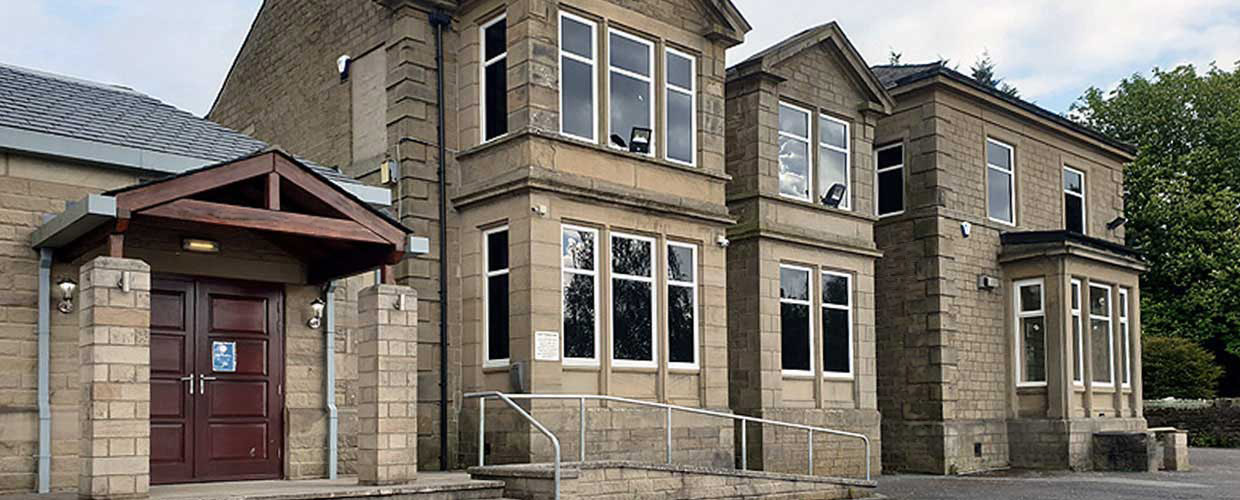A bit of history about Clayton-le Moors Freemasons' Hall (Mill House)
years old Mill owner's house.
By the side of the Leeds and Liverpool canal at Clayton-le-Moors once stood an old Corn Mill founded in 1841 by Joseph Appleby a highly regarded Industrialist and Philanthropist of the time, the Mill was serviced by both road and canal although the Appleby Family made good use of the canal by having their own fleet of barges to transport their products.
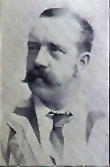
However, for the cricketers amongst you - Arthur Appleby the second son of Joseph Appleby, the founder of the firm of Joseph Appleby and Sons, corn merchants and millers, who owned mills in Enfield, Blackburn and Liverpool, all on the banks of the Leeds and Liverpool Canal; was born on 22 July 1843 at Henfield House on Blackburn Road Henfield (later known as Enfield), Clayton-le-Moors. Arthur became a first-class English cricketer and was educated at Milnshaw and later at Grange School, Thorpe Arch, near Tadcaster, North Yorkshire; he began his playing days at Enfield Cricket Club, Clayton-le-Moors in 1861 when he was 18. He played in 58 matches for Lancashire between 1866 and 1887 and in 81 first-class matches in total and continued playing until about 1901.
He was about twenty years of age when he started to show an interest in his father's business at the Corn Mill in Enfield, Clayton-le-Moors and a few years later he became a partner in the firm. He and his elder brother Edgar assumed control of the family firm after their father's death in 1878. Amongst other directorships, he sat on the board of the Leeds & Liverpool Canal. He was an Alderman of the Lancashire County Council and Chairman of the County Bench, sitting at Church.
He died aged 59 at Mill House, Enfield, Clayton-le-Moors, Lancashire, on 24 October 1902. When he died all work ceased in Enfield and schools were closed for the day in respect for a great Lancastrian. Nearly 700 walked behind the coffin on its journey from Mill House to All Saints' Church. Thirty-two private carriages followed in the procession, eight of them containing his corn merchants' colleagues from Liverpool and Bootle.

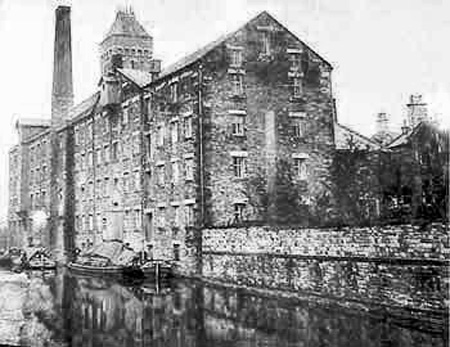
The Canal brought prosperity:
It was the canal, coal and cotton which changed Clayton-le-Moors from a sleepy old hamlet to a bustling industrial village. From 1801 to 1810, Enfield was the terminus of the canal, until the finance was raised to complete the canal, first to Blackburn, then on to Wigan and eventually to Liverpool. The canal at Enfield has a number of substantial warehouses and buildings and this stretch of the canal has several old swing bridges.
This site was originally developed as a steam powered Corn Mill constructed in 1827-8 by Joseph Appleby. In 1875 - Mill House was built in the yard of the Corn Mill for Arthur Appleby (Joseph Appleby's second Son), and his family. Arthur Appleby died in 1902 and the Mill ceased production in 1920.
The East Lancashire Soap Company Limited.
However, in 1922 the East Lancashire Soap Company occupied the Corn Mill (Proprietors: The Hacking family) who converted it into a soap factory, among other lines produced there over the years was the famous Dr Lovelace's floating soap, it was extremely popular at the time as it didn't get lost in the bath. The Dr Lovelace's plaque is on the right-hand Gateway pillar of Mill House.

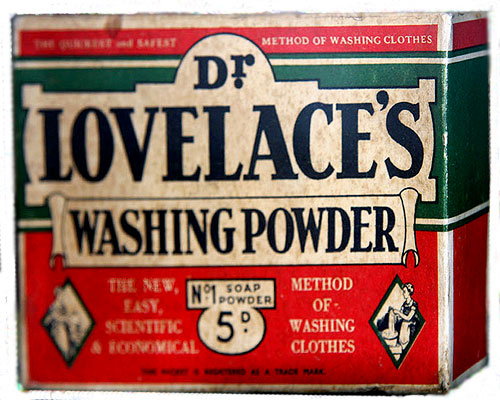
The factory has long gone (now the Car park) but the House and what we assume to be the Mill offices still remain. The original photographs of those below are displayed in the bar area of the Masonic Hall as part of its history.
The Mill buildings are long gone, demolished in about 1966, but the House (Mill House) was saved from demolition. It is interesting to note that at one time or another during the 19th and early 20th Centuries both the Appleby and Hacking families owned Henfield House, Mill House and the Corn Mill / Soap Works; and that Joshua Hacking, William Henry Hacking and Arthur Appleby were all members of Albert Edward Lodge No.1519, (founded 1875). Joshua Hacking was a Past Provincal Grand Warden and Master of the Lodge in 1911.
Masonic foresight:
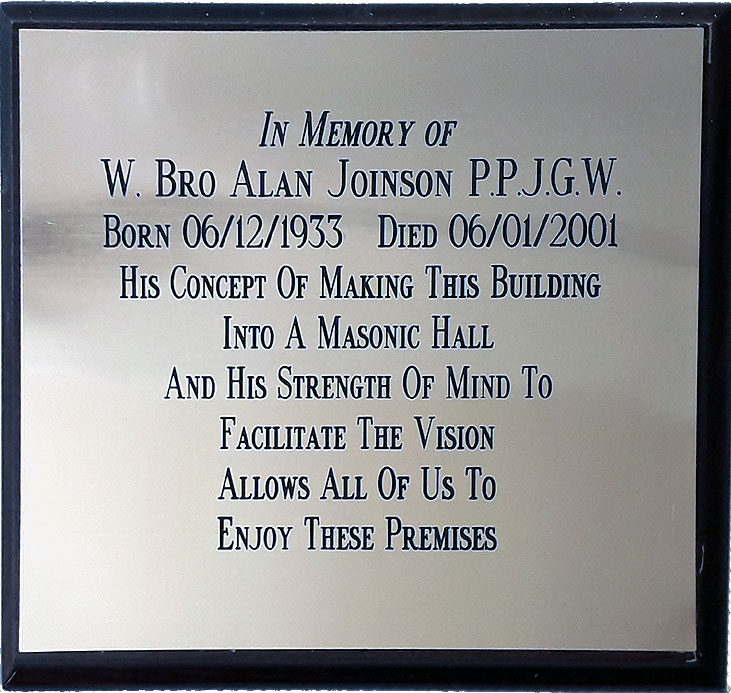
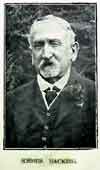
However, it was the brethren of Albert Edward Lodge, who were then meeting at the Conservative Club just across the main road, recognising the potential of the site from a concept put forward by WBro. Alan Joinson PPJGW, purchased the building and reclaimed land in about 1966 and converted the old property into a Masonic Hall. A brass plaque commemorating the life and foresight of WBro Joinson is displayed in the Festive Board room. At that time, the House comprised 27 rooms; the building was gutted and reduced to 13 rooms. After this conversion, the first Masonic meeting at Mill House was on Thursday 25th November 1971 by Albert Edward Lodge.
"In Memory of WBro Alan Joinson PPJGW Born 06/12/1933 Died 06/01/2001, His concept of making this building into a Masonic Hall and His strength of mind to facilitate the vision allows all of us to enjoy these premises"
Over the years other Lodges have moved into Mill House
to make it the
'Home of Freemasonry in Clayton-le-Moors'.
The old Stables and Coach House on Whalley Road
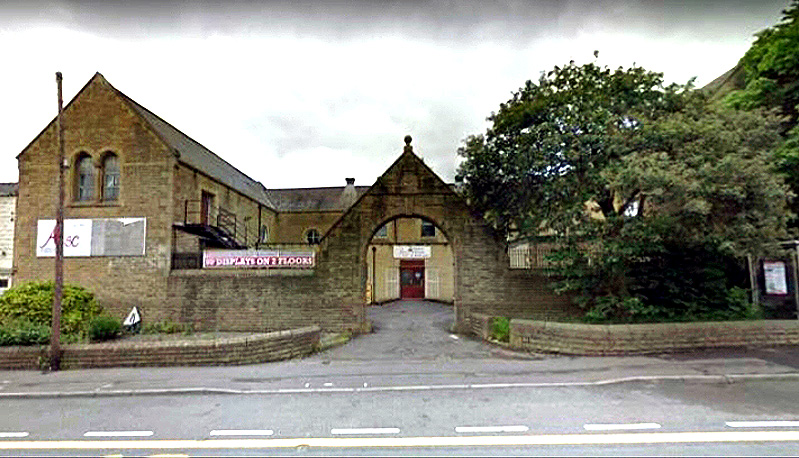
The Old Stables and Coach House on Whalley Road was built by the Appleby family for their horses and fleet of horse drawn carriages and haulage carts and formed part of the Enfield Corn Mill complex. When the Mill closed the District Council took it over as the Council Yard and in the late 1960's - early 1970's it was converted in to retail outlet premises.
After standing empty for many years, plans were submitted to Hyndburn Borough Council in 2022 to turn the old Stables into seven apartments.
Developments: 2011 - 2013
The Masonic Hall was extended and extensively refurbished during the summer recess (2011) with new Ladies/Gents/Disabled Toilet facilities plus improved access for its less able visitors. The new extension built with donations from the Haslingden Masonic Hall Company representing the three "ex-Haslingden Lodges" - Amity (283) - Commerce (215) - Rossendale Forest (4138); now gives extra facilities in the form of a new Entrance, new Lodge Room, anteroom, storeroom and Toilets. During 2013 a new Kitchen extension was added to the Hall to further improve the facilities.
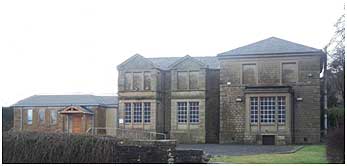
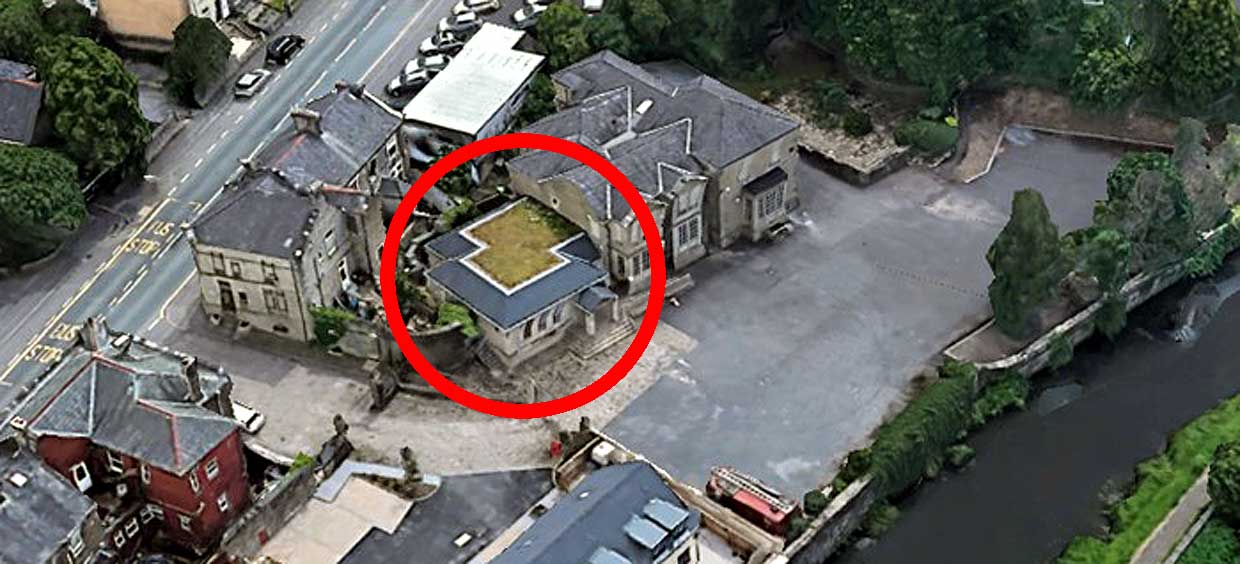
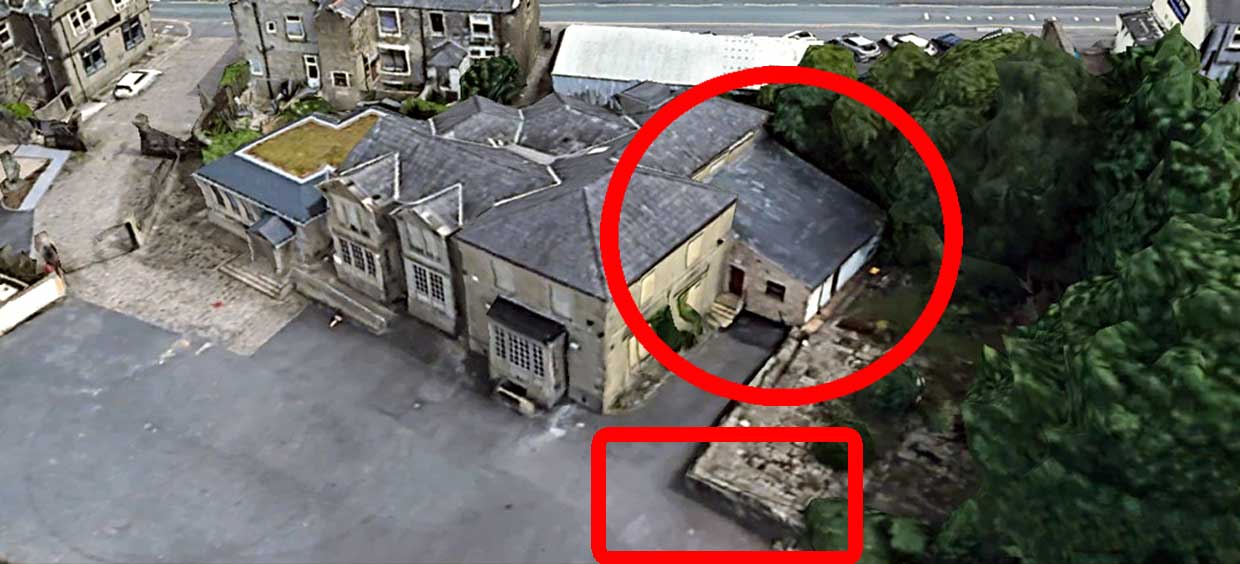
Continuing improvements - 2013:
In 2014 what was the old kitchen was converted to a small dining room / buffet room / meeting room to further enhance the facilities at Mill House.
The conversion of the old kitchen and was undertaken by various members of the Hall with outside assistance as required.
To view the progress of the improvement please Click here.
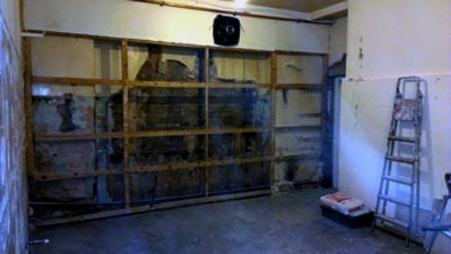
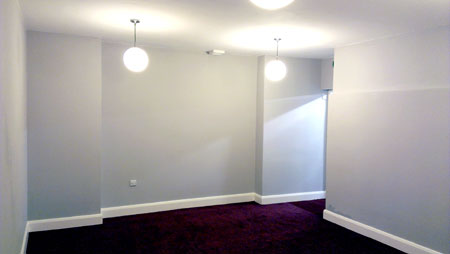
Continuing improvements - 2014:
In 2016 the Festive Board (Function) Room was redecorated and new artwork hung on the walls.
The Lounge Bar and Bar area was also redecorated and re-carpeted.
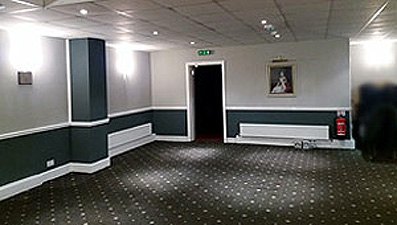

Redevelopment and Refurbishment 2021
Mill House undertook a programme of refurbishment in 2021 with the reinstatement of 27 windows to improve the external appearance of this -years-old building. The Corn Mill Suite has been completely remodelled with the removal of the stage, the opening-up of two large windows to allow natural light into the function room, a new ceiling with state-of-the-art LED lighting, new carpet and decorations. The interior redesign of the Bar and Lounge area has a new modern décor together with drinks shelving and high stools replacing the low profile table and stool layout. The whole ground floor has been redecorated with special attention paid to the Ladies and Gents toilets.
The commercial aspect of Mill House has been leased to a Company (The Mill House Weddings and Events.) who will be responsible for all non-Masonic functions, i.e., weddings, christenings, anniversaries etc., but will also provide services for Masonic evenings/functions if required.
